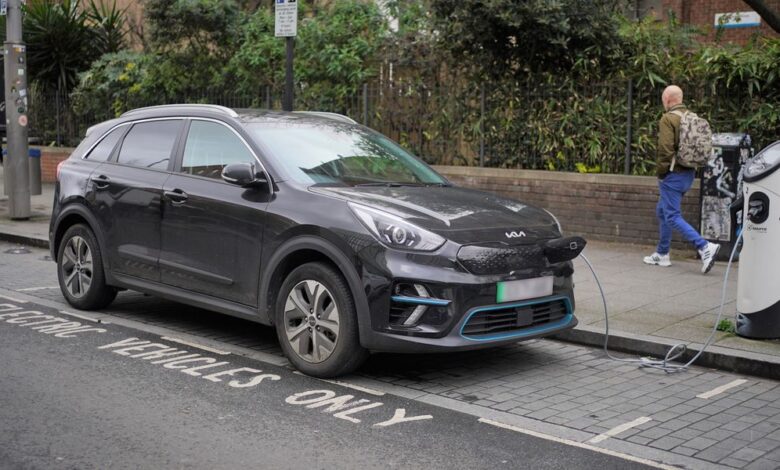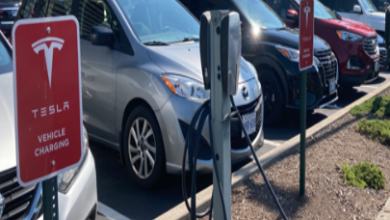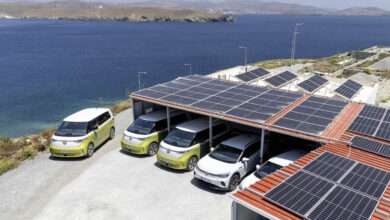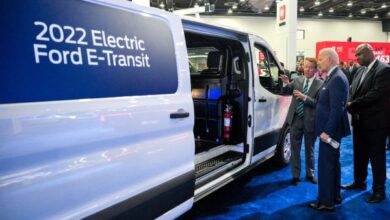Electric car drivers demand urgent charging rule changes to slash prices

Experts have unveiled a 12-point plan to boost the rollout of electric vehicle charging infrastructure across the UK.
ChargeUK, the industry leader for EVs in the UK, has published its election manifesto, calling on the next Government to accelerate plans to install more EV chargers.
Before 2030, ChargeUK is publicly committed to investing over £6billion to deliver a world-class charging infrastructure, which is currently growing by 45 per cent year-on-year.
The organisation has focused on three main themes with the overarching aim of giving confidence to people around the country to switch to an electric vehicle over the coming years.
Do you have a story you’d like to share? Get in touch by emailingmotoring@gbnews.uk
ChargeUK has called on the Government to slash VAT rates for public chargers
PA
ChargeUK has called on the Government to remove the grid, planning and permitting challenges, and including renewable electricity in the Renewable Transport Fuel Obligation Scheme.
It also aims to equalise VAT on public charging costs, bringing it down from 20 per cent to five per cent to match the rate of VAT on home chargers.
This would work hand-in-hand with encouraging lower-cost electricity, improving signage at charging stations and launching incentives to help people buy or lease EVs.
The organisation also wants to maximise private investment through the clarification of the Rapid Charging Fund, speeding up the use of the Local EV Infrastructure (LEVI) Fund and addressing significant increases in standing charges.
Vicky Read, CEO of ChargeUK, praised the development of electric vehicle charging across the UK, with more than 60,000 charge points already installed.
She added: “This, combined with over half a million home and workplace chargers, means that today’s EV drivers can be sure the charging infrastructure will be there for them.
“One in three of those public chargers was installed in the last year, underlining the pace with which the rollout is taking place.”
However, Read outlined how ChargeUK wanted to go further and install more EV chargers around the country at a faster rate to help drivers have the confidence to switch to an electric vehicle.
While there are hopes that the UK will see the installation of the 100,000th EV charger next year, there are still fears from some that other milestone goals will be missed.
The original Government target for installations was unveiled a few years ago and stated that there would be 300,000 chargers active and in use by the end of the decade.
This was the same deadline to ban the sale of new petrol and diesel vehicles, until Prime Minister Rishi Sunak delayed the pledge until 2035.
Read continued, saying: “We also know that our infrastructure has to be easy for drivers to use and that it must be affordable.
“Our manifesto details a comprehensive plan to support the UK’s transition to net zero, ensuring convenient and affordable charging for all drivers.”
LATEST DEVELOPMENTS:

There are more than 60,000 EV chargers across the UK
PA
ChargeUK’s full manifesto
1. Speed up grid connections by agreeing a voluntary Code with all DNOs, with regulation brought in if required.
2. Ensure the streetworks regime supports timely deployment, by enabling CPOs to use permits rather than Section 50 licenses and preventing unnecessary use of Section 115e licences.
3. In England, extend Permitted Development Rights to include essential supporting infrastructure (such as substations) and an increase in charger height, to reflect the approach to charging infrastructure in Scotland.
4. Include renewable electricity in the Renewable Transport Fuel Obligation, creating a market-based mechanism to support private investment, at no expense to the taxpayer.
5. Equalise VAT at five per cent for public and private charging – giving those who can’t charge at home access to more affordable charging.
6. Reform the electricity wholesale market to encourage more sustainable, lower cost and competitive electricity generation.
7. Work with industry and National Highways to develop standard charging signage and ensure it is widely used across the Strategic Road Network and other major roads.
8. Continue, and potentially expand, the current incentives that help people make the switch to EVs, whether they choose to buy or lease new, used or fleet EVs.
9. Urgently confirm the design of the Rapid Charging Fund to remove uncertainty and address market distortion.
10. Ensure Local Authorities deploy Local EV Infrastructure funding quickly and provide clearer guidance on resident consultation for charge point site selection.
11. Address recent significant increases to standing charges, which have seen costs to CPOs rise by up to 300 per cent.
12. Commit to engage with industry as the fleet, eLVC and eHGV market continues to develop.



